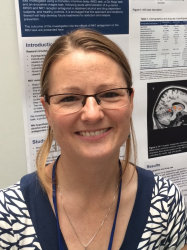BibTex format
@article{Vamvakopoulou:2022:10.3389/fpsyt.2022.998844,
author = {Vamvakopoulou, IA and Fonville, L and Hayes, A and McGonigle, J and Elliott, R and Ersche, KD and Flechais, R and Murphy, A and Orban, C and Smith, DG and Suckling, J and Taylor, EM and Deakin, B and Robbins, TW and Nutt, D and Lingford-Hughes, A and Paterson, L},
doi = {10.3389/fpsyt.2022.998844},
journal = {Frontiers in Psychiatry},
pages = {1--20},
title = {Selective D3 receptor antagonism modulates neural response during negative emotional processing in substance dependence},
url = {http://dx.doi.org/10.3389/fpsyt.2022.998844},
volume = {13},
year = {2022}
}

